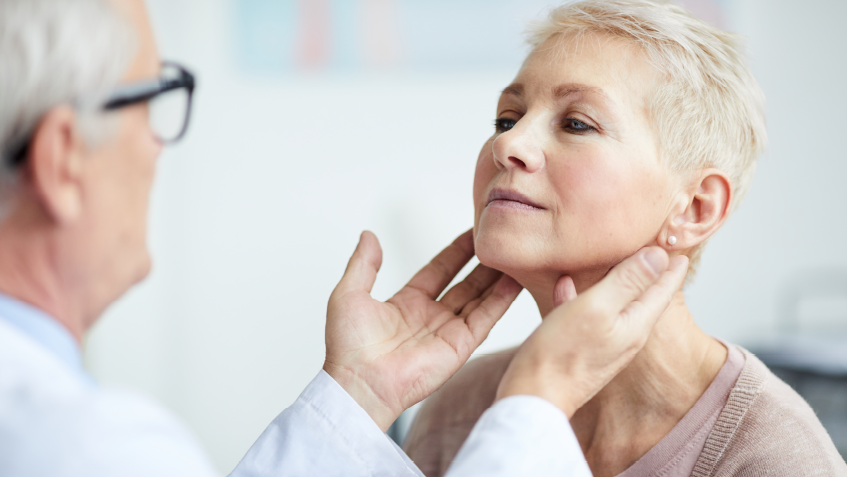By: Lishamarie Hunter
Ladies – Get yours checked!
Recent reports and research show that Thyroid disease is more prevalent in women who have served in the military. Two separate researches within the Military healthcare system show that between the years of 1990-2004 and another report 2008-2017 show that there was an increase in thyroid disease and thyroid cancer in the population that served in various branches. There is a prevalence of five separate disorders: goiter, thyrotoxicosis, hypothyroidism, thyroiditis, and other thyroid disorders.
Hypothyroidism over the ten year period of research showed that close to 9,000 women were diagnosed with this disease, and well over 40,000 cases of thyroid disorder overall. Thyroid disease is treatable but can results in non-deployability. It takes about one year to stabilize the disease. The VA has decided that thyroid disease is a presumptive condition in the computation decision process.
Problems tend to develop slowly, often over a number of years.
At first, you may barely notice the symptoms of hypothyroidism, such as fatigue and weight gain. Or you may simply attribute them to getting older. But as your metabolism continues to slow, you may develop more-obvious problems.
Hypothyroidism Signs may include:
- Fatigue
- Constipation
- Dry skin
- Weight gain
- Puffy face
- Hoarseness
- Muscle weakness
- Elevated blood cholesterol level
- Muscle aches, tenderness and stiffness
- Pain, stiffness or swelling in your joints
- Heavier than normal or irregular menstrual periods
- Thinning hair
- Slowed heart rate
- Depression
- Impaired memory
- Enlarged thyroid gland (goiter)
- Sensitive to cold temperatures
Hyperthyroidism Symptoms may include:
- nervousness, anxiety and irritability
- hyperactivity – you may find it hard to stay still and have a lot of nervous energy
- mood swings
- difficulty sleeping
- feeling tired all the time
- sensitivity to heat
- muscle weakness
- diarrhea
- needing to urinate more often than usual
- persistent thirst
- itchiness of skin
The best way to diagnose any thyroid issue is to see your primary care provider and have a complete thyroid panel of blood work, not just TSH numbers. Complete thyroid bloodwork includes TSH, T3, T4, Free T, and Reserve T3. An endocrinologist is the specialist that specializes in your thyroid system.
Quite a few women have been told they are fair yet they feel ill. The best way to ensure you receive good quality healthcare is to be your own advocate. Even though women are more likely to have thyroid disease men can suffer from the disorder as well.
Explore more articles from VOM Magazine here: https://www.veteransoutreachministries.org/vom-magazine/




